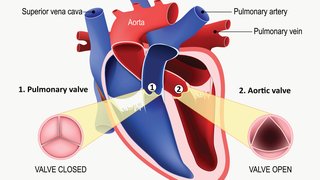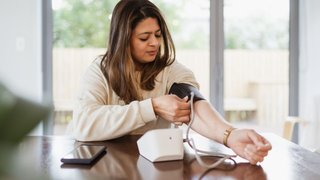
Think about the medications you’re taking right now for blood pressure, high cholesterol, diabetes, or maybe headaches. Have you ever considered how these life-changing medications came to be?
The answer is clinical research. Without clinical research, these drugs and hundreds of others like them wouldn’t exist.
If you don’t really understand what clinical research is, you’re not alone. Simply put, it’s research that involves people. It’s how we move findings from the laboratory into real-life settings involving people so we can find better ways to understand, diagnose, prevent, and treat illnesses.
Basically, if thousands of people before you hadn’t volunteered to take those medications during a clinical trial, you wouldn’t have access to them today. Sounds important, right?
Mission: discovery
I’m proud to say that, as a physician-scientist, this is the type of research I do. I’m a cardiologist, so I spend half my time seeing patients with heart-related conditions, and the other half I spend on research studies. Every week, I’m inspired by my patients to discover something through research that can make a difference in their lives.
The study I’m working on right now has the potential to help us understand how obesity impacts heart disease and diabetes development and treatment. We suspect that the location of fat on a person’s body may put him or her more at risk for heart disease and diabetes. I hope to learn how a certain medication used to treat diabetes may change how the body handles the storage of fat and its use to make blood sugar.
The number of people who have volunteered for this study has been overwhelming, in a positive way. The participants are as interested in searching for answers as I am, it seems.
So far, I’m encouraged by our findings, but one of the hardest parts of clinical research is the waiting. Moving a drug or finding from a Phase I clinical trial (the first phase in humans) to regular use in the clinic takes many years.
Register to make a difference
Knowing this – that new discoveries don’t happen overnight – why do patients participate in clinical research? Why should you? For some studies, you may get reimbursed for parking, maybe even receive a small stipend for your time. But I’ve now been the lead investigator on two studies, and I know financial reimbursement isn’t really why most participants do it.
They’re not doing it for the potential benefit for themselves. It’s simply because they want to help. Maybe a discovery will be made during their lifetime, or maybe in their children’s lifetime. They don’t really know, but participating in clinical research is their way of being involved in something that could make a difference.
Now let me back up for just a minute. Recruiting patients to participate in clinical trials isn’t always easy. In fact, many clinical trials fail because they don’t recruit enough participants. Just think about that – what new treatments are we missing out on because the clinical trial didn’t have enough people interested in participating?
That’s why we need to take action and bring the topic of clinical research to the forefront. How can we help make more clinical trials successful? As a start, we can educate those around us. Let’s get this topic out there. Share this post with your family and friends. Talk about it at the dinner table. Help those around you learn more about what clinical research is and the potential it holds. Or, better yet, join our Research Participant Registry and start making a difference right now.










